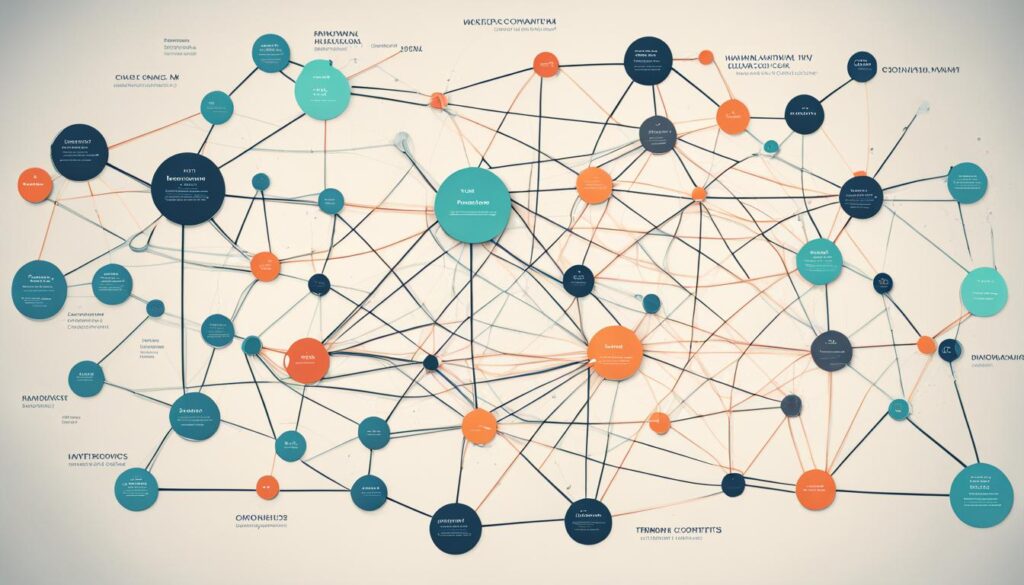
Business Ecosystem Thinking is a paradigm shift from the winner takes all mindset for a Complex World. The business landscape has evolved to become a complex web of interactions, far from the linear models traditionally taught in business schools. In this intricate setting, the "winner-takes-all" mentality is not only outmoded but potentially destructive, fostering market monopolies and stunting systemic innovation.
The alternative? Business Ecosystems Thinking. A paradigm shift, this model embraces complexity as an asset, providing a framework for collaborative co-existence that is adaptive, dynamic, and sustainable. Here are the key principles to help you navigate this emerging paradigm.
Paradigm Shift: The Principles
Interdependence: The most fundamental tenet of Business Ecosystems Thinking is interdependence. Unlike traditional models that treat businesses as isolated entities, this approach understands that the fates of all participants are interconnected. A ripple in one corner of the ecosystem reverberates throughout.
Co-Evolution: Hand-in-hand with interdependence comes co-evolution. Businesses don't evolve in a vacuum; an innovation or pivot in one will necessitate changes in others. This creates a perpetual state of adaptive behaviour, fostering resilience and long-term viability.
Shared Value Creation: Gone are the days when competition was the only game in town. Cooperation is just as vital in modern business ecosystems. Participants co-create value, amplifying collective capabilities and offering enriched services or products that would be difficult to achieve individually.
Adaptive and Dynamic: Static is synonymous with stagnant in today’s world. Businesses in an ecosystem must be ready to adapt to swift changes, whether they are market shifts, technological advances, or unforeseen disruptions.
Decentralization: The decentralized nature of business ecosystems democratizes decision-making, allowing for rapid and flexible responses to change. However, this comes with the caveat that strong governance is necessary to avoid chaos.
Niche Specialization: Within this complex web, businesses can focus on what they do best. Rather than being a jack-of-all-trades, companies can specialize, secure in the knowledge that their ecosystem partners will handle other aspects, creating a more efficient and effective whole.
Resource Exchange and Flow: Just as nutrients cycle through a biological ecosystem, resources—including information—flow freely among businesses. This facilitates not just efficiency but also sparks innovation.
Open Innovation: Closed doors don't make for a thriving ecosystem. Open innovation is crucial for mutual growth, allowing businesses to share and implement best practices and new ideas freely.
Network Effects: The more the merrier—each new participant increases the ecosystem's value, creating a virtuous circle where everyone gains from the collective input.
Sustainability: Unlike models focused solely on the bottom line, business ecosystems aim for long-term health and stability. This often translates into a broader scope that includes social and environmental considerations.
Governance and Norms: Despite its decentralized nature, governance mechanisms—be they formal or informal—help ensure coordination and conflict resolution, keeping the ecosystem vibrant and functional.
Customer-Centricity: Last but not least, business ecosystems exist to create superior value for the end customer, often transcending traditional industry boundaries to deliver holistic solutions.
Offering a way forward
In a world marked by complexity, Business Ecosystems Thinking offers a way forward, a model that capitalizes on interconnectivity and mutual benefit. Understanding these key principles provides not just a roadmap but a compass, guiding us toward a more sustainable, equitable, and innovative future.
For an in-depth exploration of the subject of business ecosystems, please see the two books listed below.
Business Climate Change on Amazon Kindle
Business Ecosystems Handbook on Amazon Kindle
Both these books are available as Kindle Editions on Amazon. The Kindle app is free and available on most devices including laptops, tablets and phones. These links are to the US site, but the books are available from your local site too.

